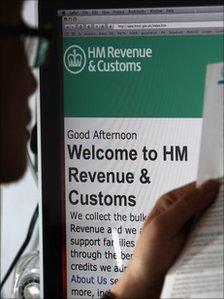Budget 2011: Changing the wheels of the tax system
- Published

This is a reforming Budget.
It announces significant changes to personal allowances, pensions and National Insurance.
These are structural, not symbolic.
The creaking machinery of tax and benefits is to be overhauled, to be replaced by a remodelled, simpler system.
Personal allowances
The headline reform is the further increase to personal allowances.
From 2012 individuals under 65 will be able to earn a further £630 before income tax, allowing them tax-free income of £8,105.
This is on top of the £1,000 increase in allowances which takes effect this April.
This is good news. We are gradually drawing closer to a £10,000 tax-free allowance.
Once achieved, this will take most people on the minimum wage out of the tax net, and reduce the need for benefits to top up take-home pay.
National Insurance reforms
National Insurance (NI) is the Cinderella of the tax system, but played an important role in this Budget.
The chancellor announced that the government will consult on changes to integrate the operation of the pay-as-you-earn (PAYE) income tax system and NI contributions (NICs), so as to remove "distortions".
This is generally to be welcomed, but the devil will be in the detail.
One of these distortions affects those with more than one job.
Unlike income tax, NICs are calculated on a per-job basis. Currently, you pay NICs when your earnings are more than £110 a week.
So if your wages are £100 a week from each of two part-time jobs you will pay no NICs, but someone earning £200 from one job pays NICs of £9.90 a week.
This "distortion" is thus a big help to part-timers making ends meet by taking on extra work.
Damage?
Reform would create a fairer system.
But it would also damage many low earners who could end up paying over £500 a year more to the government.
NICs is currently levied on most earnings, but not on pensions or dividends.
The Budget documents have confirmed that the planned merger of tax and NICs will not change this.
Pensioners are also exempt from NICs, even on earnings, and this is set to continue.

Flat rate pensions
Pensions are another area where reform is planned.
Currently, most employees are building up a second-tier state pension (S2P), previously called SERPS (State Earnings Related Pension Scheme).
Some are contracted out of S2P, either individually or via their final-salary schemes.
This Budget heralds the end of both the state second pension and its associated contracting out arrangements, although reassuringly we are promised that the government will honour contributions already made.
So if you have a state pension forecast showing what you will get from the state pension when you retire, the top-up element you have already earned should remain untouched.
For the future, instead of these complex and expensive second-tier pensions, you are likely to get a flat-rate pension of £140 a week.
More work is to be done on how this will work, and whether it can be afforded - but the planning is in place for a major simplification.
IR35
More disappointing was the announcement that the complex tax regime called IR35 - an anti-avoidance measure that burdens small businesses - will remain in place.
Instead of the widely expected reform, the Budget announced an improvement in its administration.
Of course, this is welcome.
But the heart of the problem is that the law itself is intrinsically uncertain, and nothing has been done to change this.
Travel costs
At the other end of the scale come two small changes to travel costs.
The bad news is that the occasional late night taxi, provided when you work late, is likely to become a taxable benefit.
If it does, you and your employer will both pay tax and NICs on your taxi fare.
Wisely, in my view, the government is to consult before it goes ahead with this change.
The good news is that the amount you can claim back while driving on business has increased from 40p a mile to the more generous 45p.
This is fairer, given the costs of petrol - and come on top of the Budget's changes to fuel duty.
Conclusion
The 2011 Budget contains significant structural reforms.
The government has promised extensive consultation to minimise collateral damage, and this is welcome.
Of course, these plans are only blueprints, but when we look back on this Budget, we may see a turning point in our tax system.
The opinions expressed are those of the author and are not held by the BBC unless specifically stated. The material is for general information only and does not constitute investment, tax, legal or other form of advice. You should not rely on this information to make (or refrain from making) any decisions. Links to external sites are for information only and do not constitute endorsement. Always obtain independent, professional advice for your own particular situation.